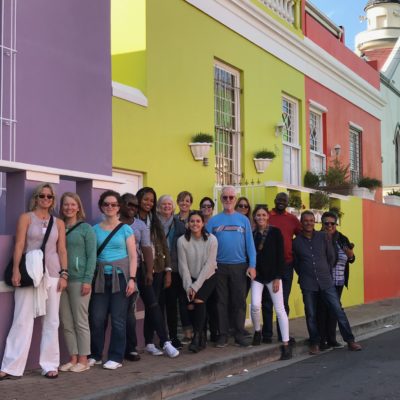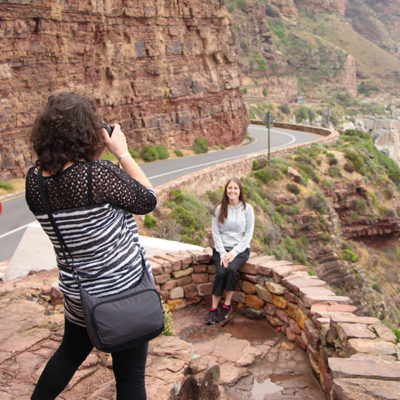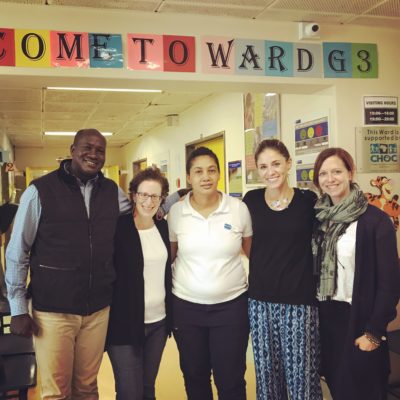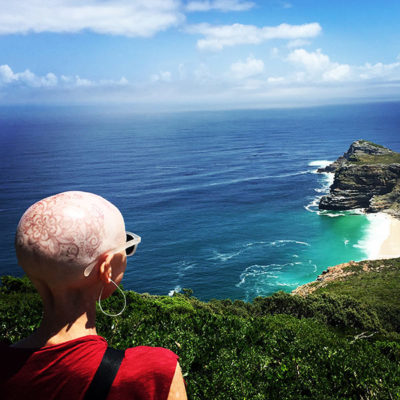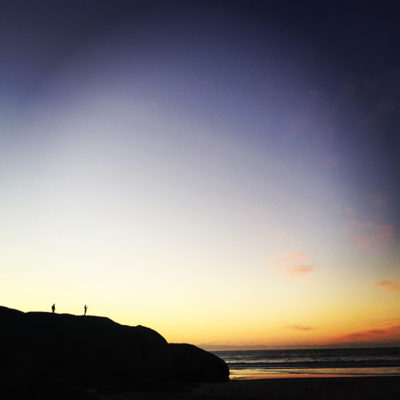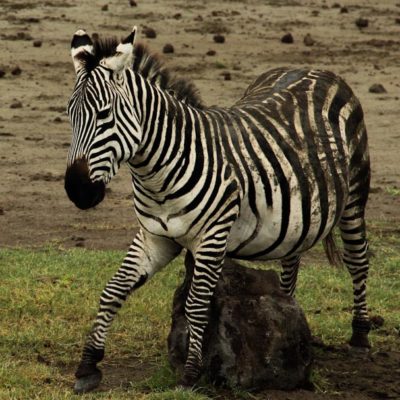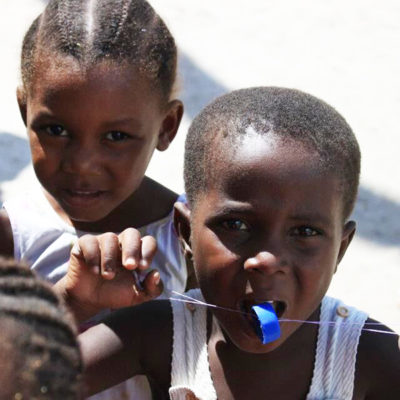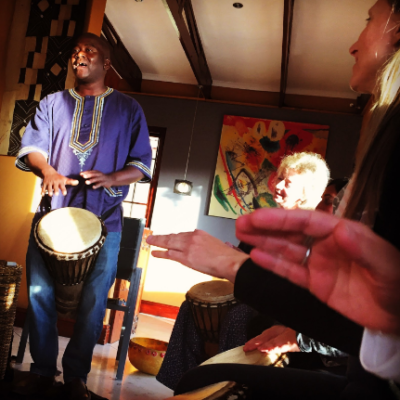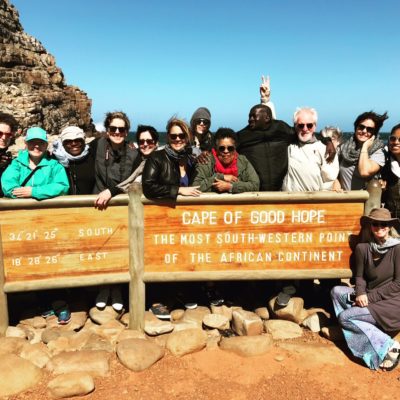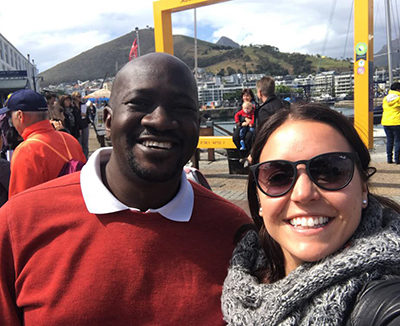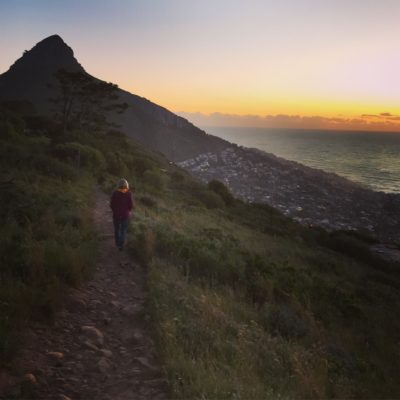
South Africa Odyssey: Country
Country
Excursions/Free Time
Because of the nature of the program and all of the experiences we want to offer, there is limited free time. However, we have built in time for reflection and rest as well as the option during a couple of afternoons/evenings where you can head out shopping/sightseeing and stay out to have a meal on your own or with a smaller group (at your own cost). While in Cape Town, you will have a few opportunities to explore the city and the surrounding areas. Make sure to do your own research too – these are just our favorites!
Robben Island – Just off the coast of Cape Town, Robben Island awaits – full of history. Take the ferry for an afternoon tour with an ex-political prisoner and see the cell where Nelson Mandela was held for 18 years. This tour is also weather dependent, as the roughness of the sea will determine if the ferry sails, so book early in case you need to reschedule. Cost is approx. $25 pp.
Lion’s Head – If you are a hiking enthusiast, you must hike Lion’s Head! With breathtaking views of The Mother City, you can easily make this hike in the afternoon or evening in 1.5-2.5 hours. Capetonians suggest hiking on the night of a full moon!
Long Street – Long Street is in the heart of City Bowl and is lined with markets, restaurants, music, and more. If you are looking for a night on the town, Long Street has it all. If you want to try some famous South African game, head to Mama Africa– but make a reservation in advance!
Markets & Shopping – Everyone loves to bring home a few souvenirs from a trip – check out these venues for all of your South African goodies!
– Greenmarket Square – outdoor market, not open on Sundays
– Pan African Market – indoor market located on Long Street
– V&A Waterfront – shops, restaurants, & the famous Cape Wheel
– Old Biscuit Mill – located in Woodstock, we suggest checking out the Neighborgoods Market, open Saturdays from 9 AM – 2 PM
Museums – Cape Town offers a plethora of museums to explore while you are there. Here are a couple of our favorites that we haven’t already included in our itinerary:
– South African National Gallery
Company Gardens – Easily accessible as you tour downtown Cape Town, make sure to take a stroll through Company Gardens which is adjacent to the South African Parliament. You will enjoy beautiful views of Table Mountain and thousands of different species of vegetation!
Kirstenbosch Botanical Gardens – Take a stroll through one of the most beautiful botanical gardens in the world, nestled at the foot of Table Mountain. This is an easy afternoon activity and the entrance fee is less than $5 pp.
High Tea at Mount Nelson – Head to Mount Nelson Hotel for a fancy afternoon of High Tea & Crumpets. We suggest booking the day before you plan to attend. Tea times are 1:30 PM and 3:30 PM. Cost is approx. $20ish pp
Two Oceans Aquarium – If you are a fan of aquariums, this is one you can’t miss. Cost is approx. $10 pp.
Before & After The Program (1-2 Extra Days)
Winelands – Just an hour outside of Cape Town, the beautiful vineyards of Stellenbosch await. Spend the day touring the incredible wineries for spectacular views and generous pours of free wine. Cabs aren’t readily available, so we suggest checking out a company like Vine Hopper for hop on/hop off service. Budget approx. $100-200 for a day trip (transportation, tours, etc.)
Aquila Safari – If you aren’t taking additional time before or after your trip to get to Kruger National Park, this is an excellent alternative. Just a few hours outside of Cape Town, Aquila Safari offers day packages where you can see the Big 5 at their game park. Approx. $150-200 for a day trip, weekend trip runs $350-400.
Whale watching – You will be in Cape Town during a spectacular time of year, which includes whale watching season in the city of Hermanus. Take a short boat ride off the coast and watch as Southern Right Whales surround you! Cost is approx. $75-100 pp (includes transportation to Hermanus).
Shark-Cage Diving – If you are a fan of the Discovery Channel’s Shark Week, then you must take the opportunity to cage-dive with Great Whites while you’re in Cape Town! Head to Gansbaai for the early morning tour and jump in the cage for a close encounter with Jaws! Cost is approx. $150-300 (company dependent).
Adventure Junkie – South Africa is the perfect place for adventure junkies. Go on the world’s highest bungee jump, go sky diving, or even paragliding…the possibilities are endless! Budget between $200-400 depending on activity.
Before & After The Program (4-7 Extra Days)
Everything listed in this section cannot be accomplished throughout the duration of your program; you would need an additional 4-7 days before or after the trip.
The Garden Route – Fit all that South Africa has to offer in one incredible trip along The Garden Route! Walk with lions, visit an elephant sanctuary, hang with monkeys, ride an ostrich, see the Big 5, bungee jump, zip-line, head into the wilderness then along the coast, and eat at some amazing restaurants. Most people suggest taking 6-9 days for the full experience, but you can do a shortened trip for 3 days for approx. $500. For a 6-9 day adventure, budget approx. $1000-1500
Kruger National Park – If you want a real safari experience, head to Kruger National Park for a 4+ day adventure in one of the largest game reserves in Africa. Not only will you see the Big 5, but you can camp under the stars or treat yourself to a luxurious lodge. Note: You will want to get malaria medication if you choose to visit Kruger. Budget approx. $1200-2200, depending on the length and style of your trip.
Johannesburg & Durban – South Africa has some incredible cities to visit outside of Cape Town. If you’re planning a trip to Johannesburg or Durban outside of the program, we suggest using South African Airways for your domestic flights. Insider tip, if you do Johannesburg before your program, flights are often cheaper from the U.S. & Canada, so it’s a great way to cut costs on your airfare & see a new city!
Victoria Falls – Many travelers like to fit in a trip to Victoria Falls in Zimbabwe/Zambia while they are so close to one of the 7 Natural Wonders of the World! Make sure to plan an additional 3-4 days for this trip! Note: You will need to get malaria medication for this portion of your trip, and you will need to get a visa (U.S. & Canadian citizens) upon entry into the country (approx. $30-$75). Budget approx. $400-700
Culture
One of the most important things you can do to prepare for your adventure in Cape Town is to learn about South Africa’s history, culture, and people. You are about to travel to a country with an extremely complex history. The Zulus once ruled the land before it was colonized by the Dutch who then implemented apartheid. Apartheid was a policy or system of segregation on grounds of race. During apartheid, South Africa produced some of the world’s most praised freedom fighters and humanitarians such as Nelson Mandela, Steve Biko, and Desmond Tutu.
You will be volunteering in the townships and Cape Flats where you will witness the remnants of apartheid, which has resulted in the stark separation of neighborhoods by the color of someone’s skin. You will hear English, Afrikaans, Xhosa, and several more of South Africa’s 11 official languages spoken throughout your time in Cape Town. With every step you take, there will be something new to learn.
Weather
Cape Town has a mild Mediterranean-style climate: wet and cool winters, dry and warm summers. September and October is the tail end of winter in Cape Town. The average high is around 68 degrees F, and average low around 50 degrees F. They say Cape Town can have 4 seasons in one day, so layers are important.
For the latest weather in Cape Town, check here
Language
You will hear English, Afrikaans, Xhosa, and several more of South Africa’s 11 official languages spoken throughout your time in Cape Town. The most common languages in Cape Town are English, Afrikaans and Xhosa. Afrikaans is the most widely spoken home language with more than 40% of Capetonians speaking the language.
Afrikaans has roots in 17th century Dutch and influences from English, Malaysian, German, Portuguese, French and some African languages, It was originally known as Cape Dutch, with proper Dutch being the formal written language.
Safety
Your safety is our number one priority at A Fresh Chapter, and we want to ensure you are informed so you can make smart decisions throughout your time in Cape Town.
When you are traveling to any major city in the world, there is bound to be crime. However from our experience, Cape Town feels just as safe, if not safer than living in New York City! Here are a few smart traveler tips to keep you & your belongings safe while in South Africa.
- Do not take valuables to your volunteer placement. You will not need any money or your cell phone while you are in the townships in the morning. You will not be bringing your camera until near the end of your placement and if/when you do, be sure to carry it in a small bag and leave it on your person when you aren’t using it.
- When heading into the city, take only the amount of cash you will need for the day or bring along your debit/credit card. We suggest carrying your money in your front pockets or in a purse/bag. Petty theft is the most common form of crime in City Bowl, so just be aware of your surroundings when you’re out and about and don’t flash your money, phone, or camera when walking down the street.
- Do not use ATMs that are outside on the street. Most banks have a lockable ATM vestibule or have guards nearby, so take the extra safety measure and head inside to use an ATM and don’t take out large sums of money at one time.
- When you go for a walk or a run, please do not wear your headphones, as this can make you an easy target for petty theft.
- Only take our recommended cab companies or Uber during free time. Two reputable companies are Excite and Elite; both of these taxi services use meters, so you never have to worry about getting an unfair price.
- Do not go into the townships on your own during free time.
- Please keep in mind that many of your friends and family can forget how large the African continent is. We have found that people often will read about a safety concern that is happening in Libya and assume that it will affect your travels to Cape Town, when in reality it is thousands of miles away.
Just remember that we will do everything in our power to keep you safe, and as long as you are aware of your surroundings, you are in for a trip of a lifetime!
Smart Traveler Enrollment Program (STEP):
U.S. citizens are encouraged to enroll in the Smart Traveler Enrollment Program (STEP). U.S. citizens without internet access may enroll directly at the nearest U.S. Embassy. By enrolling, U.S. citizens make it easier for the embassy to contact them in case of emergency.
Medical Treatment:
We offer comprehensive medical insurance to all participants. Treatment, if needed, is done by English-speaking doctors and accompanied by A Fresh Chapter representative. All selected participants will receive more specific information and details about coverage.
Currency
- An additional $75-$250 per week is suggested, for things like optional activities, snacks or meals out, shopping, etc. These costs vary depending upon the participant (and often, how much shopping they want to do!).
- The South African currency is Rand. For an up-to-date exchange rate, click here. Currently the exchange rate is about 13 Rand to 1 Dollar. The currency code for Rand is ZAR, and the currency symbol is R.
- Debit and Credit cards are widely accepted across Cape Town. This is the safest and smartest way to bring money with you when traveling to South Africa.
- Call your bank before you leave the country to let them know your dates of travel. Be sure to ask them what the transaction fee is when using an international ATM.
- Ensure that you have a 4 digit pin to access your account via an ATM.
- When dining out at a restaurant in South Africa, it is customary for the server to bring the credit card machine to your table to swipe your card (this helps to prevent fraud). If they don’t bring the machine to you and try to take your card to the back, you should politely ask them to bring the machine to your table.
- Cash – we suggest bringing only $50-100 in US currency, in case of emergencies. Carry the majority of your money on a debit/credit card. Cards can be easily replaced, but cash cannot.
- You will need South African Rand for things like open air markets and cabs. Make sure you have small bills/coins for negotiating at the markets and paying in exact change! For most other outings, like eating at restaurants or general shopping, you can pay with your debit/credit card.
- Traveler’s checks may be used as a back-up in case of emergency, but it is not recommended to use this as a primary method of accessing money.


